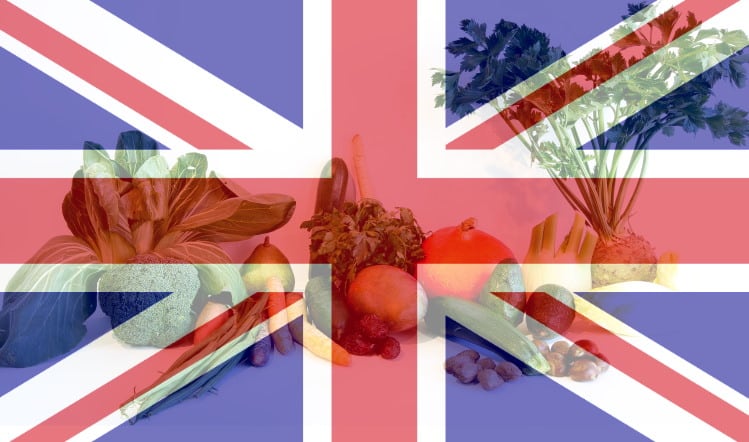Food and Drink Federation chief executive Karen Betts said the strategy was an endorsement of the success and centrality of the UK’s food industry and welcomed the commitment to put British food and drink at the heart of UK government policy.
“With the right policy frameworks and the right support from government, our industry can provide unmatched support for Levelling-Up, and benefit from growing exports while optimising imports,” said Betts.
“The Government also has the industry’s support in developing ways to help people live healthier and more balanced lifestyles, and the industry’s Action on Fibre initiative and reformulation programmes are evidence of our support to date.”
Investment and regulation
But more could be done by the Government, such as supporting investment in tech to drive productivity and ensuring regulation is fit for purpose, to ensure extra costs aren’t driven into manufacturers at a time of soaring inflation.
“The UK Government must also work hand-in-hand with the Devolved Administrations to ensure that different policies affecting our sector don’t end up unnecessarily costing households more,” Betts concluded.
Andrew Kuyk, director general of the Provision Trade Federation, said the Government needed to do more to address the impact of rising raw material prices and to protect UK food standards in its response: "We believe more needs to be done across the whole spectrum of the Dimbleby recommendations and to address soaring input costs which have the potential to jeopardise future viability. It will also be vital to ensure that we strike the right balances in future trade deals to preserve our domestic standards and competitiveness while securing opportunities in other markets."
Soil Association head of food policy Rob Percival described the Government’s response as ‘like thin gruel’ that fell short of the aspirations set out in Henry Dimbleby’s National Food Strategy.
“At a time when people are going hungry and the climate, nature and public health crises are escalating, the absence of leadership is palpable,” he added.
Rays of hope
However, fragments of the policy did offer some hope, citing the ambition that half of public sector expenditure should be spent on food produced locally or to higher environmental standards, like organic.
“If implemented as part of a wider package of reforms to public procurement, this policy could be transformational,” he continued.
“We also welcome the proposed land use framework aiming to set out how sustainable farming will feature in the UK landscape, but we are yet to see vital reduction targets with support for farmers to end reliance on artificial fertilisers and pesticides, which we know contribute to nature and climate breakdown.”
National Farmers Union president Minette Batters said: "We know the public want to be eating more local, British food and farmers are ready to play their part in producing high quality and climate-friendly food, all while protecting and enhancing our environment. We now need to see this strategy develop into clear delivery and investment to capitalise on the benefits food and farming delivers for the country, such as our world-leading standards of animal welfare, environmental protection and food safety.”
Plant-based foods
Chief Executive of the Plant-based Food Alliance UK, Marisa Heath called the Government response 'a missed opportunity', which 'ignores the potential that plant-based foods offer to progress the Government’s climate and health objectives'. “Plant-based food and drink has incredible potential to deliver on the Government’s aims, and we hope that Ministers will do more to embrace our sector in the months and years ahead."
The Good Food Institute Europe welcomed the Government's proposal to invest more in alternative proteins. Policy manager Elena Walden said: “It’s great to see the Government recognise that sustainable proteins can provide exciting opportunities for green growth, complementing the best of British farming while creating good quality jobs across the country.
“With its world-beating scientific credentials and entrepreneurial spirit, the UK is well placed to become a global leader in sustainable proteins, but without ambitious and coordinated measures now, we risk falling behind other countries like the Netherlands and Israel who are taking this area more seriously. Investing now will put the country at the forefront of this dynamic global industry.”
Waste
Marcus Gover, chief executive officer of the Waste & Resources Action Programme (WRAP), welcomed the Government's comments on waste in its response. “More than 200 large food businesses already measure their food waste as part of the WRAP-IGD Food Waste Reduction Roadmap and are realising financial and environmental benefits by minimising that wastage. We welcome the proposal to extend this with a consultation on mandatory reporting for larger businesses.
"We estimate a further 400 food businesses could be brought on board. The availability of robust data is core to businesses achieving climate and other environmental goals and WRAP welcomes the Food Data Transparency Partnership as a means of ensuring a consistent approach to measurement across the sector. Last month, WRAP published draft Protocols for measuring Scope 3 GHG emissions, which we are piloting with 15 food & drink businesses. We anticipate the new Partnership will provide the framework for wide adoption of these Protocols.
“If we want to tackle climate change, improve UK agriculture, help people eat more healthy food and drive the rural economy, we need to take heed of all the recommendations in the National Food Strategy. It is good to see policy measures being implemented as a result of the strategy, but food is critical in so many ways that we need to make sure we are doing all we can to drive system change and deliver a sustainable food system for the UK.”
Campaign group Love British Food also welcomed the government’s commitment to sourcing local produce in the public sector.
Government engagement
“Our lobbying efforts over and since the pandemic have resulted in greater engagement with Government and I’m delighted to see that reflected in today’s policy objectives,” said founder Alexia Robinson.
“Serving more locally sourced produce in the public sector is a win-win. It pumps money into the local economy, supports jobs in the area and can provide excellent value for money. It's a mystery why this hasn't happened sooner, to be frank.”
While there was still room for further improvement, the announcement was a positive start towards the promotion of local produce, which had needed a concerted Government push.
"A welcome next step would be to use British Food Fortnight 2022 [a national celebration of British food organised by Love British] as a catalyst for this push, encouraging all schools, hospitals and other public sector institutions to join the event by putting British on the menu,” Robinson continued.
“This should be a central Government policy and the positive results we’ve seen over the years could be replicated in every corner of the country - let’s make it happen.”
Eco-labelling
Susan Barratt, chief executive of IGD praised the Government for pursuing a single mandatory eco-labelling scheme and its support of randomised control trials to encourage healthier and more sustainable diets. IGD was working with 20 leading organisations across industry and the University of Leeds on these trials.
“We look forward to sharing the results of our real-life trials, using the findings to work with government to build the evidence base," said Barratt. "The trials take us on the journey of realising our longer-term ambition, to establish what levers truly inspire sustained behaviour change and help our industry to adopt best practice and create wide-reaching social impact.
“We know from our conversations with businesses across our industry that there is a real desire to find a clear way forward and to help deliver a long-term positive change to Britain’s food system. IGD stands ready to play our part using our unique ability to bring stakeholders together from across the whole food and grocery industry.”
Sara Stanner, science Director, British Nutrition Foundation, supported the Government's proposals for schools to lead the way on nutrition: “We are pleased to see that the Government recognises that teachers and school leadership have a vital role to play to improve child health, having introduced some measures around food education within the Levelling Up White Paper. But we need to recognise that food education is more than ‘cooking’ and must encompass learning around healthy eating and where food comes from, to enable young people to make healthier and more sustainable choices now and into the future.
"It is timely that the publication of the Food Strategy comes when new findings, published today as part of Healthy Eating Week, has revealed a concerning lack of knowledge among schoolchildren about the nutritional contents of many common foods."
Lack of progress
Meanwhile, Graham MacGregor, professor of cardiovascular medicine at Queen Mary University of London and Chairman of Action on Sugar and Action on Salt was disappointed by the Government’s plan of action and the seeming lack of commitment to a evidence-based food system.
He argued that the recommendations posed in the original National food Strategy would have made getting access to healthier food much easier and protected people from death and disability caused by unhealthy diets.
“We can only assume that Sajid Javid has chosen not to implement these tailor-made recommendations for political reasons which completely contradicts the Government’s levelling up ambitions,” he added.
“This shambolic decision will no doubt massively impact the NHS and the nation’s health which will suffer the consequences and escalating cost of treating obesity, Type 2 Diabetes and tooth decay (all linked to our very high and unnecessary sugar, salt and saturated fat intakes) that the food industry is entirely responsible for.”





